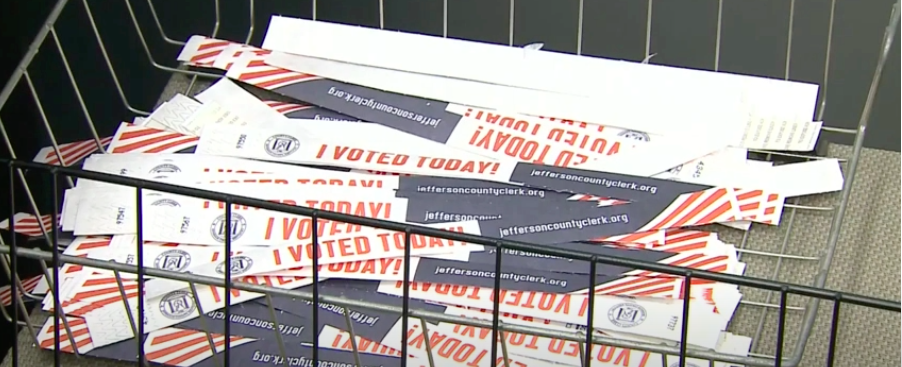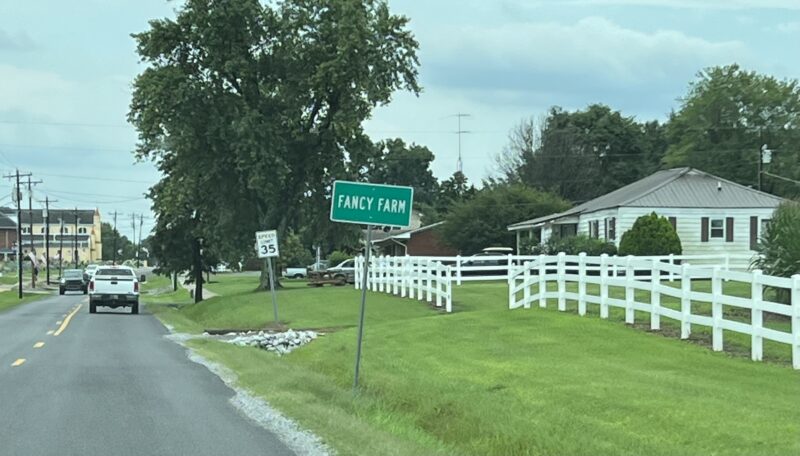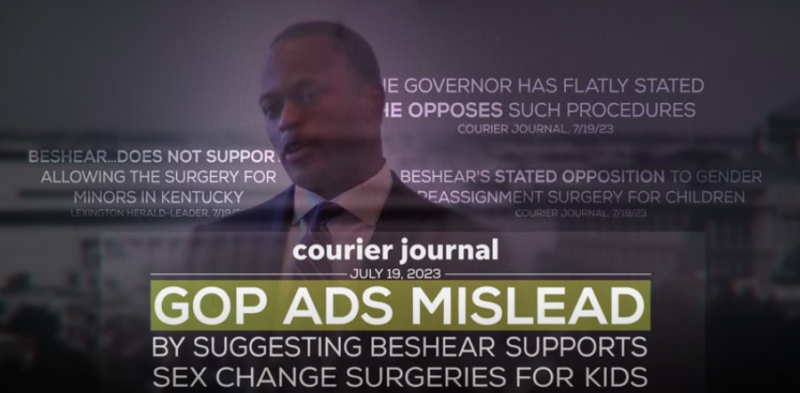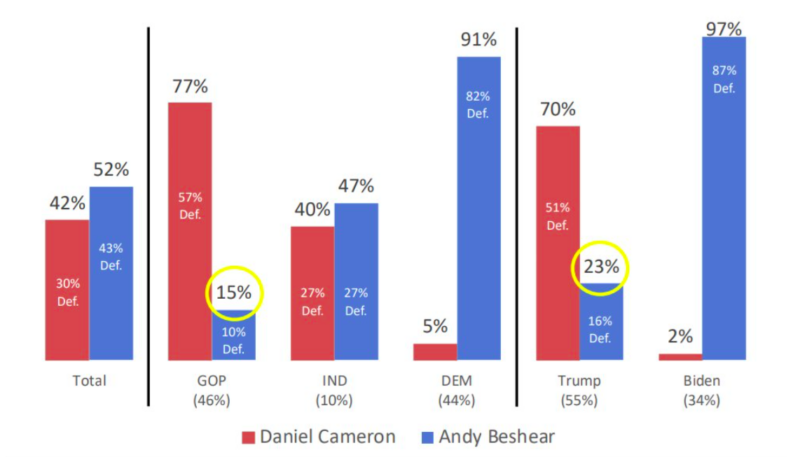OPINION EDITORIAL FROM TJ HENSLEY: When I was younger, and first started to learn and talk of politics and history, the refrain I heard from my parents, grandparents, and many others was the same: ‘the Democrats are the party of working folks’. I suspect that many others who grew up in eastern Kentucky heard just the same from their relatives and neighbors; moreover, I would think that the reason people have been saying this for decades, is that it was once the plain truth.
In 1936, Franklin Delano Roosevelt was overwhelmingly reelected President of the United States, defeating the Republican, Kansas Governor Alf Landon, in all but two states. Along with FDR came a vast Democratic majority in the U.S. House (334 Democrats, just 88 Republicans) and in the Senate (75 Democrats, 17 Republicans). Similarly, in 1964, President Lyndon Johnson was reelected. Defeating Republican Arizona Senator Barry Goldwater, Johnson won forty-four states to Goldwater’s six. And just like his hero FDR, LBJ was accompanied by landslide Democratic victories in the House (295 to 140 seats), and the Senate (68 seats to 32). In each of these victories, both FDR and LBJ cleaned up in rural America. Both candidates won nearly every state in the Appalachian region, including Kentucky, and it’s easy to see why.
Both President Roosevelt and President Johnson made it central to their campaigns, and their administrations, to uplift workers and the poor. FDR and his New Deal had delivered hundreds of thousands of jobs through federal work programs (noticeably reducing unemployment caused by the Great Depression), created Social Security for the elderly and other dependents, and established by law, the right of workers to organize into unions (which would prove instrumental to striking coal miners across Kentucky, particularly in my home, Harlan County). LBJ and the Great Society he championed built upon the legacy of the New Deal, establishing Medicare and Medicaid to provide subsidized public healthcare for the elderly and the poor, creating food stamps, and establishing programs such as the Job Corps to further opportunities for employment.
Both the New Deal and the Great Society were transformative for Kentucky, particularly in rural places such as Appalachia. Of course, neither the New Deal nor the Great Society were perfect, just as neither FDR nor LBJ were perfect—and I do not want to give the impression that I am nostalgic for a Democratic Party which was personally loyal to them as individuals. But both Presidents understood the importance of good government. For all its faults in times past and times to come, the federal government and the power it held could be harnessed to make things better for those who needed help, including the working poor in Appalachia, and across America. This was the reason why I registered as a Democrat once I turned eighteen. And I think it is the main reason why a lot of folks in my home region—people like my family and my neighbors—grew up with the belief that the Democratic Party truly was the party for the working class, because the truth is, they sure used to be.
But it is clear to me—as I am sure it is clear to many others in our state—that by and large, the Democratic Party of today is not the Democratic Party of Franklin Roosevelt and Lyndon Johnson. In my view, this is the principal reason why so many in our state have left the Party in the first place. Recently, I took the same step, one that I thought I would never take: I left the Democratic Party, and here’s why.
I’ve struggled to decide how I might lay out my case for leaving the Party, both for my dear friends and family who remain Democrats and who may not understand why I have chosen to leave and for those who are also considering leaving the Party for the same reasons that I am.
In all of this internal deliberation, I cannot describe my feeling as anything other than being “fed up”. In 2020, the Democratic Party pulled off the rare feat of unseating an incumbent President. Equally notable was that the Democrats held on to their majority in the House of Representatives and flipped the Senate—both by the narrowest of margins. Finally, I thought to myself. With Trump gone, with full control of the federal government, and facing a myriad of social, economic, and public health crises, here was the best opportunity in nearly a century to fundamentally change our social and economic reality for the better, in the hands of the Party that came from the tradition of the New Deal and the Great Society. I was especially convinced of this given the surge in support amongst young people — a notedly progressive constituency — for the Democratic Party, as Joe Biden won 65% of voters aged 18 to 29; at the end of the day, they’re politicians, I thought of Biden, Kamala Harris, and the rest of the Democratic leadership, they would be foolish not to pursue policies that are popular with the people who put them here in the first place. As the first two years of the Biden Presidency unfolded, I learned well the truth in the observation made by the late, great historian David McCullough: “There’s no such thing as the foreseeable future”.
At first, I was even more optimistic than I usually am (which for me, is really saying something). The American Rescue Plan Act, which passed almost completely along party-line votes, was in many ways a transformative piece of legislation. It extended enhanced unemployment insurance for millions who were thrown out of work because of the COVID-19 pandemic, and expanded the Child Tax Credit to between $3,000 and $3,600 per child for qualifying families — which cut child poverty in half during its implementation. In addition, the ARP provided funding for education and housing assistance programs, as well as for the distribution of COVID-19 vaccines.
So what happened after that?
The Build Back Better Act — the next prong in Biden’s New Deal approach —further expanded tax credits for working families, provided substantial funding for clean energy initiatives, as well as for education from pre-K to college and vocational training, and expanded Medicare to cover more services. But a new New Deal it was not to be, for the grand obstructionists, would not entertain the President’s plea (I’m sorry, I felt a rhyme would heighten the dramatic tension).
Joe Manchin and Kyrsten Sinema stepped in as the true wielders of power in an evenly split Senate. Manchin withdrew his support for Build Back Better, and when the eventual iteration of that plan came about in the Inflation Reduction Act (named as such purely as a political prop, in my view), Manchin supported it, as it fast-tracked permitting for his pet project, the vastly unpopular and scandal-ridden Mountain Valley Pipeline. Sinema supported the Inflation Reduction Act as well, so long as the provision was stripped from the law which taxed the income of hedge fund managers and private equity managers at a whopping 37% (it should be noted that, as reported at the time by PBS, Sinema received almost $1 million in campaign contributions from the very people who would have to pay that 37% instead of the current 20%). Both Manchin and Sinema opposed a provision in the American Rescue Plan which would have raised the federal minimum wage to $15 an hour — an amount which I consider the floor, and not the ceiling.
There is more to this story as well. There was the impeding rail strike in December of 2022, wherein 115,000 railway workers threatened to strike unless their grueling schedules were reformed, safety conditions were improved, and a minimum number of sick days were provided. When the rail industry offered wage increases only and did not address the fundamental concerns of the workers, Biden and a vast majority of Senate Democrats voted to force those workers to accept the tentative agreement. Call it what you may, in my view, this was nothing more than legislative strike breaking, supported by the President, who claims a desire to be the “most pro-union President leading the most pro-union administration in American history”, and enacted by 42 of 50 Senate Democrats.
And before my Democratic friends here in Kentucky object that my reasoning for leaving the Party seems to be primarily focused on issues affecting the national Democratic Party, I have this to say. I wholeheartedly support Governor Beshear. I was proud to campaign and canvass for him in 2019, I think he has done an excellent job as Governor in the face of seemingly innumerable and unprecedented challenges, even when faced with an unbelievably uncooperative legislature that has seemed more concerned with opposing him than passing meaningful legislation. I will likewise do everything I can to ensure that he is re-elected this coming November and will proudly give my support to him. Likewise, there are several figures in the Kentucky Democratic Party whom I greatly admire, and with whom I agree on many issues; State Senator Cassie Chambers-Armstrong is not only a dedicated and engaged legislator but an inspiration to her fellow eastern Kentuckians. State Representative Cherlynn Stevenson shows immense concern for her constituents, as do several of her Democratic colleagues in the House. Former Representative Angie Hatton made a deliberate effort to reach out to her new constituents in the part of Harlan County which she was drawn into (and was arguably felled in 2022 by gerrymandering more than anything else). And of course, if former State Rep. Charles Booker ever throws his hat into the ring for elected office in Kentucky, he will invariably have my support.
That being said, I and many others have noticed what is perceived to be a lack of concerted effort by the KDP as an organization to even compete in many places across Kentucky, particularly in rural districts. As I detailed in a previous piece for Kentucky Fried Politics, in almost half of the races for the Kentucky State House in 2022, there was no Democrat on the ballot for folks to vote for in the first place; eleven of those no-contest districts were in eastern Kentucky. Believe me, there is immense potential here. There are many people who want a kind of politics that is fundamentally different than that which is being offered by the Republican Party, both nationally and here in Kentucky. That is potential that the KDP could very well tap into, but it cannot and will not happen without a deliberate effort from the state party to engage with voters here; I don’t have all the answers as to how that can be done, but I know that it cannot be done through uncontested districts, and with no real choice given to voters in the election.
I suppose it was inevitable, given the state of the Democratic Party in our current moment, that I would eventually leave what was once the party of FDR and LBJ. As I wrote in a separate KFP opinion piece, many young voters like myself do not see a place for our progressive politics in either party, because we see only one party split into red and blue teams which by and large are tasked with running up the score for corporate America. To be absolutely clear, I recognize that there are several people with progressive ideals who do believe that the Democratic Party can be “reformed” from within; moreover, several of my close friends and family will remain in the Party I am sure. I respect their position and wish them success in that effort, I simply disagree with them that it can be achieved any time soon.
What is left for me, and I believe what is left for a majority of those who share my politics, is to find an outlet for those ideals. In Kentucky, that is an uphill battle. Achieving recognition as a party in our state requires at least 20% of the vote in the last Presidential election, an unbelievably tall order. In fact, third parties and independent candidates and causes are often plagued with far more strenuous requirements to even appear on a ballot than the Democratic or Republican candidates. This two-party domination is, in my view, largely perpetuated by the two parties themselves, who have no incentive to make elections more competitive, and thereby risk losing whatever power they may have (in the words of Tom Sexton, co-host of the Trillbilly Worker’s Party podcast, “Don’t confuse getting to vote with living in a democracy”).
But speaking for myself, I am not so concerned with what Party I eventually settle with, than I am with advocating for the ideals in which I have come so strongly to believe in: I believe in a living wage of at least twenty or twenty-five dollars, I believe in the unconditional right to unionize and the unhindered right to strike, I believe in providing free health care to all as a fundamental human right, I believe that workers should have more direct control over their own workplaces, I believe in extensive debt forgiveness (not just student debt, but medical debt as well) for workers, the poor, and the marginalized; I believe in a federal jobs guarantee, I believe in stopping corporate price gouging and thereby curbing inflation, I believe that the very wealthy have a duty to actually pay their taxes and that the tax burden for workers should be cut instead, I believe in policies which protect our environment so that we and those who come after us will actually be able to live on this planet, I believe in equality for everyone before the law, I believe that no one should be afraid of losing their job, afraid of going hungry, afraid of being unhoused, afraid of getting sick, or afraid of anyone else. These are positions that I think directly address the fundamental issues which have left so many across our state and our country to languish in a sub-standard of living: raging inequality, corporate greed, and lack of access to essential services and goods. The only way to combat those problems is to offer real solutions that are transformative and far-reaching.
Again, I am sure that there are many in the Democratic Party who share those positions — in fact, I know several registered Democrats, in Kentucky and elsewhere, who do. And when those folks are in charge of the Party, believe me, I will be the first one to once again register Democratic; but until that day comes, and for the time being, my home will be in the Green Party, and in any progressive or forward-thinking space wherein pro-worker politics can be found.
T.J. Hensley is a graduate of Georgetown College in Kentucky, and a law student at the University of Louisville. His opinions are his own. He is the host of the Appalachian Firesides Podcast on Apple and Spotify, in which he discusses subjects related to the politics, culture, and history of Appalachia.



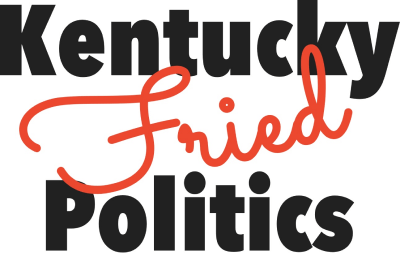
 Login
Login  Must include at least 8 charaters
Must include at least 8 charaters